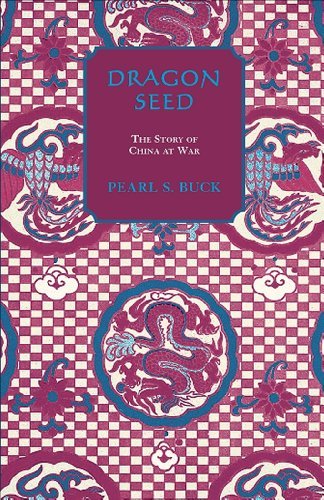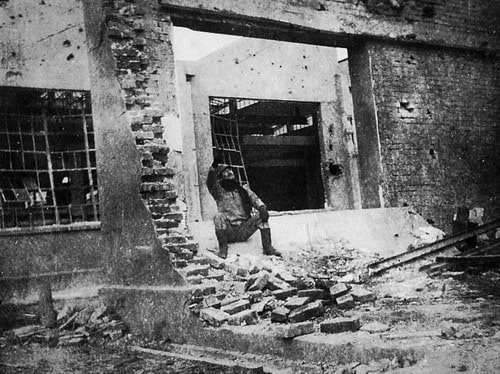 A Story of the Nanjing Massacre
A Story of the Nanjing Massacre
Author: Pearl S. Buck
Ling Tan is in love with his land, as any 1930s Chinese farmer would be. He has a good life, a good family, a connection with his land and village that is sustaining. True, there are rumors of war, but what does it matter to ordinary people who “rules” the country? Farming and village life will go on as before. Taxes will be sent to a different entity. Nothing will change.
Lao Er, Ling Tan’s second son, and his wife, Jade, know better. As members of the younger generation, both are literate. Both are moving away from tradition, although they still respect and support it. Both are hearing troubling rumors of invasion, of death, of rape, and the ravages of a cruel war. Both know that life as it is, as it always was, is about to be brutally ripped from them. Do they flee or do they do their duty by their parents, their land, their village?
Dragon Seed is traditional Pear S. Buck, simple yet eloquent and biting. It is a character study, but also a study of the times, of the serenity of believing that nothing will change, of family and morals and generational values. It’s a brutal story, one that is devastatingly true.
Buck knew the truth of this episode in history, which focuses on the Japanese invasion of China during World War II, specifically the Nanjing Massacre. Ling Tan’s peaceful village is right outside of Nanjing. What follows is the eradication of bucolic life. Buck is not gruesomely descriptive, but she captures the essence of fear, the questioning of Ling Tan’s family as they each individually experience the war, as they realize that the land they held for generations is being steadily ripped from their hands, as they seek vengeance and safety. It’s a depressing story, a very human story of war. There is murder (lots of it) and rape (also, lots of it.) It’s not an easy read, but it is a necessary one, an engrossing one that takes a crushing, often overlooked moment in World War II and brings it to bloody life.

English: Photo in the album taken in Nanjing by Itou Kaneo of the Kisarazu Air Unit of the Japanese Navy during Nanjing Massacre, recording the atrocities committed by the Japanese Army. 1937. 伊藤兼男 (Itou Kaneo), Public domain, via Wikimedia Commons
There is a wide cast of characters in the Tan family. We follow at least eight of these people closely, yet they are easy to distinguish. They each have different, often fatal responses to the war. Some of them are destroyed physically, and some of them are destroyed mentally. Some fight back (the younger generation) and some give up (the older generation). It’s a fantastic study of a beleaguered people and an individual look at very real characters going through a massive upheaval and reacting to the catalysts of war, fueled by the instinct of survival.
It’s hard to read Dragon Seed and not cry. It is impossible to read it and not become deeply affected by the emotions revealed, by the depths of depravity and the heights of hope and strength. This novel is also crucial from a historical perspective. The “learn from history or repeat it” motif is clear throughout, but in the end it is ultimately the story of a family caught in the chaos of their own time, trying to survive and make sense of it all.
The only thing I wish was that Buck had given us a more clearcut ending. I guess that I cannot ask for a hopeful ending – it isn’t that kind of story. As it is, the novel simply ends. The war is still raging. The rebels still fighting. The Japanese still in charge. It’s a strange place to just stop. There is no closure. No final revelation. No continuation of the history. We only get a slice of this horrible life, and the conclusion speaks of both hope and utter devastation. It could go either way, and but for the history texts, it would be impossible to know the final answer. As it is, what remains of Ling Tan’s family remains in this liminal moment, and our goodbye is a brief, wrenching one.
– Frances Carden
Follow my reviews on Twitter at: https://twitter.com/xombie_mistress
Follow my reviews on Facebook at: https://www.facebook.com/FrancesReviews
- Book Vs Movie: The Shining - April 6, 2020
- Thankful For Great Cozy Mysteries - December 13, 2019
- Cozy Mysteries for a Perfect Fall - October 20, 2019

